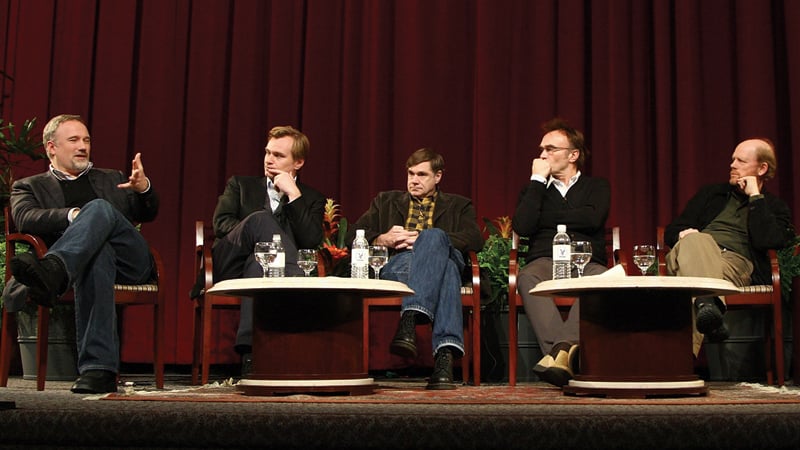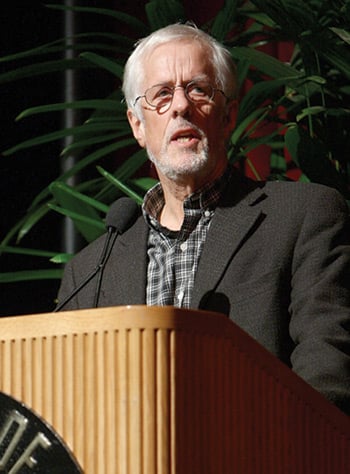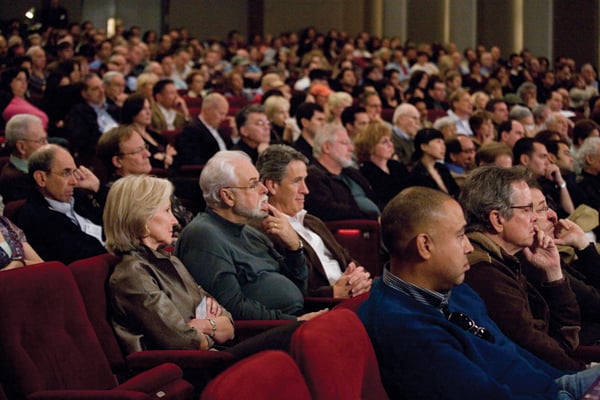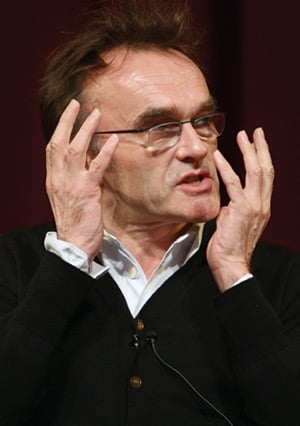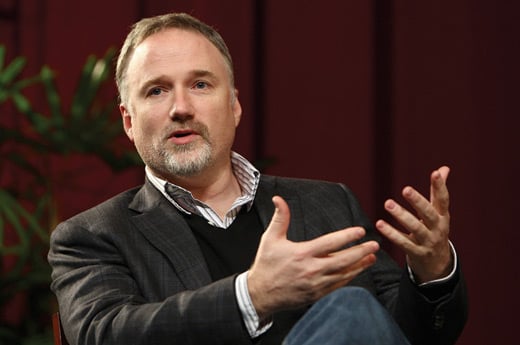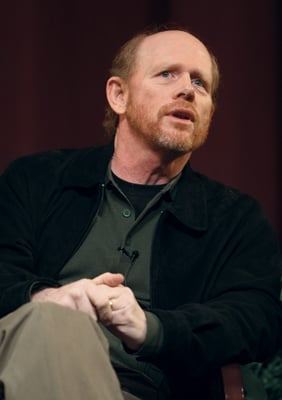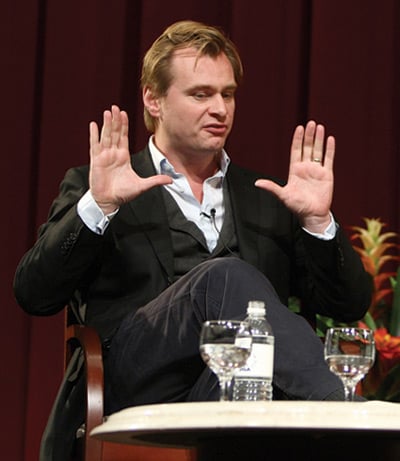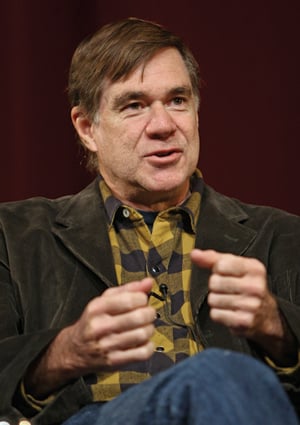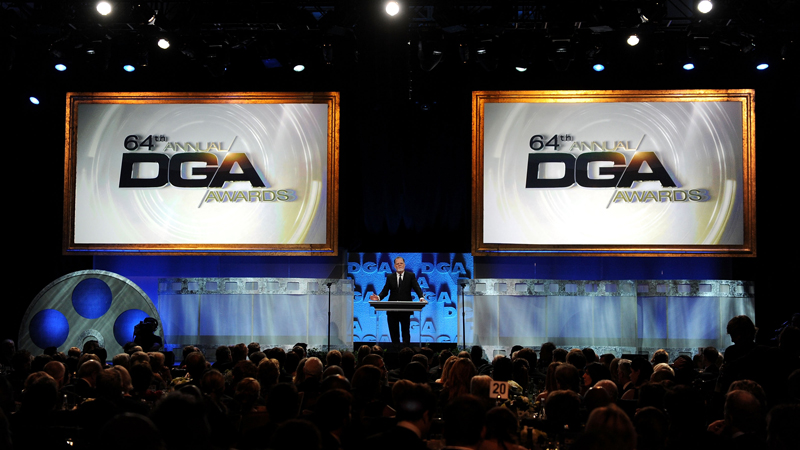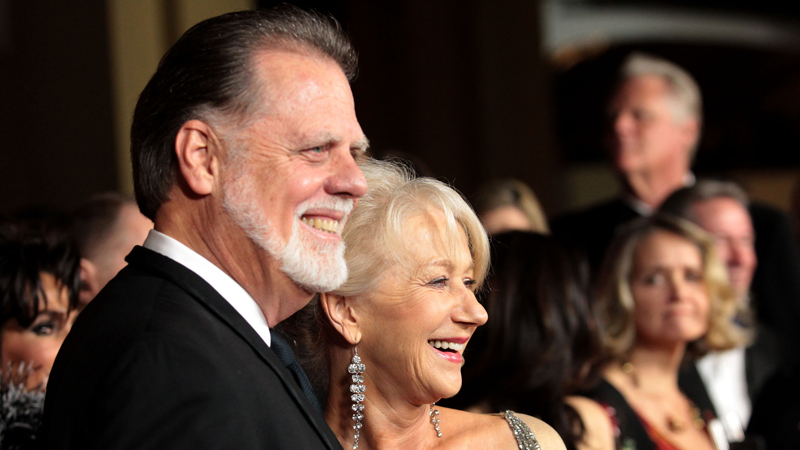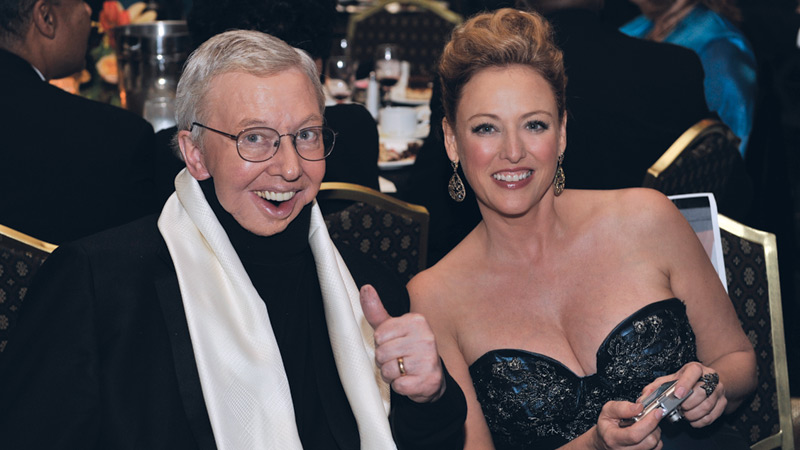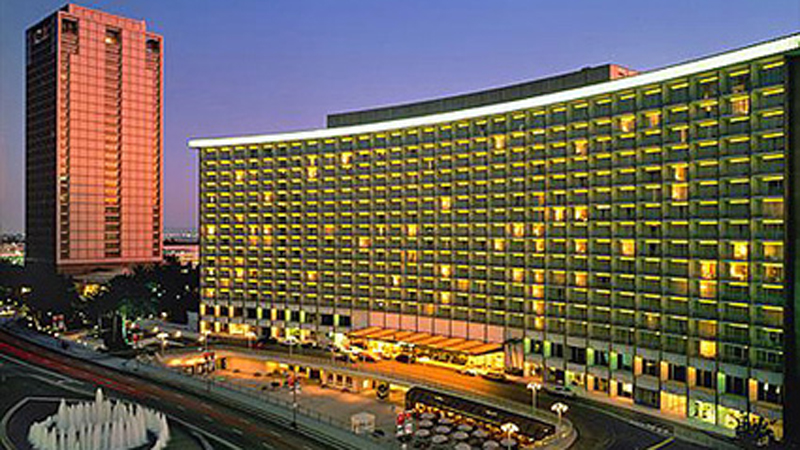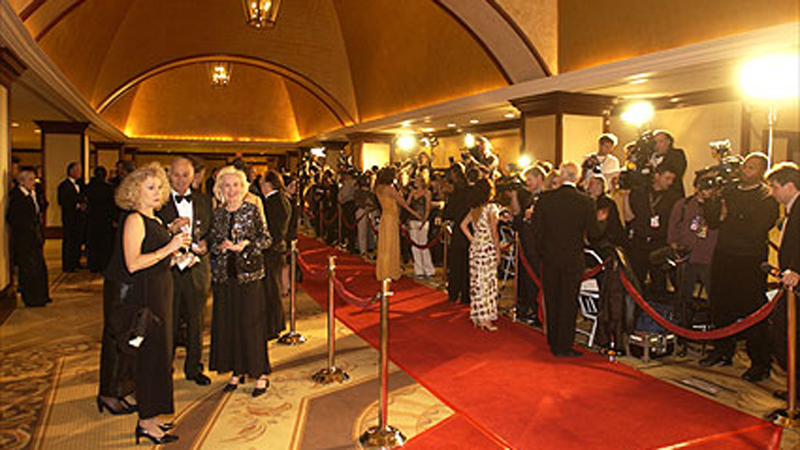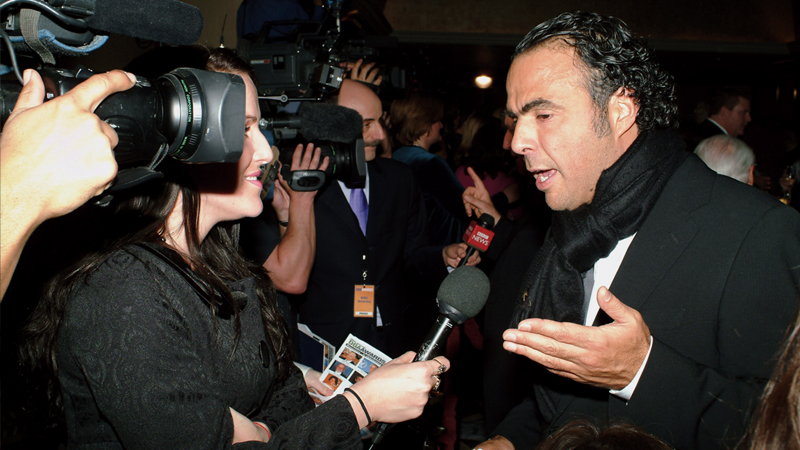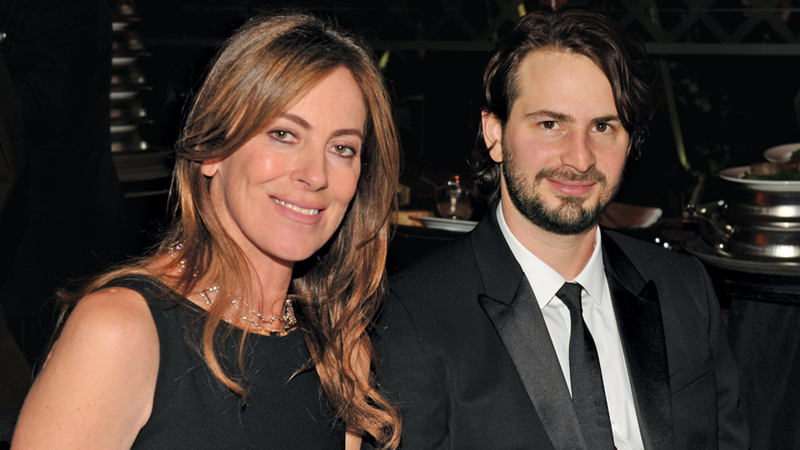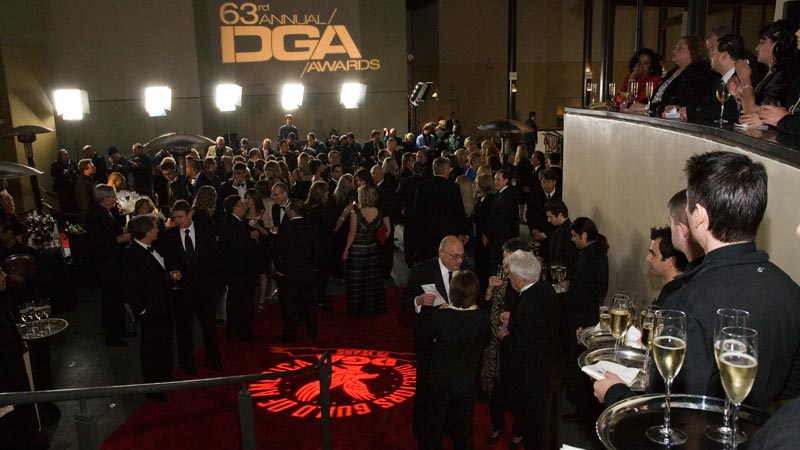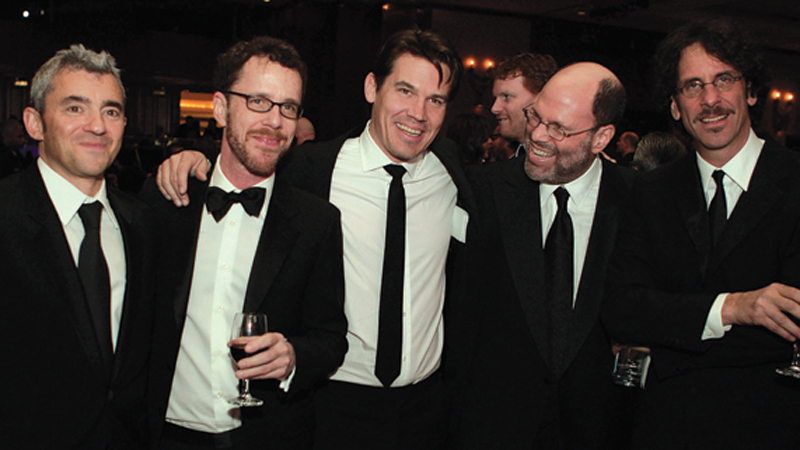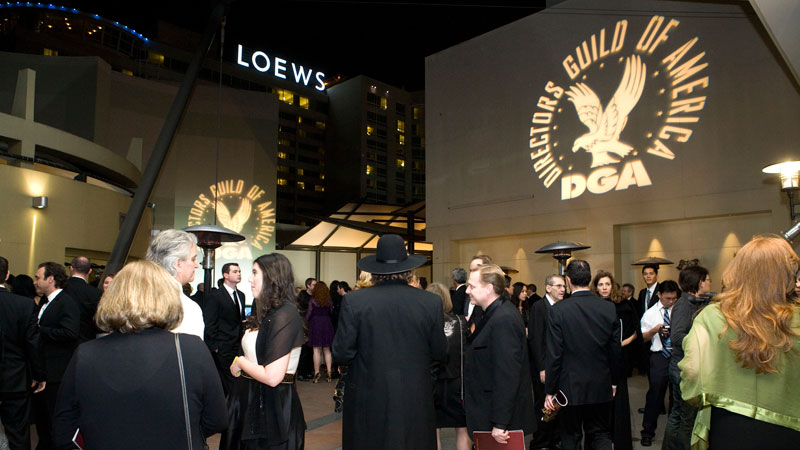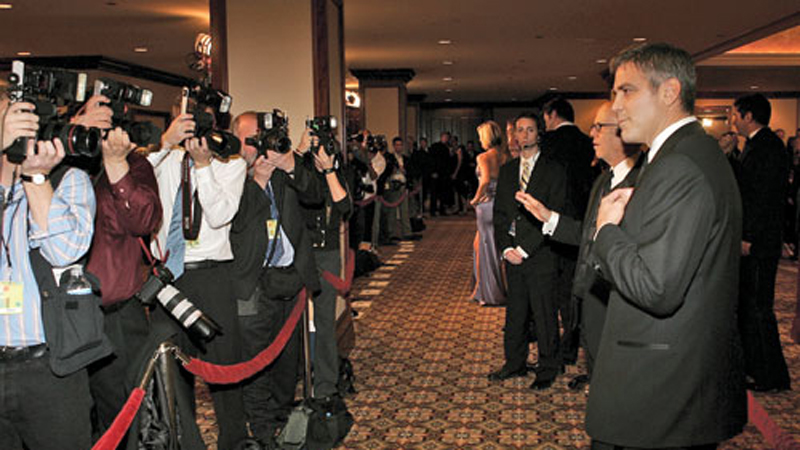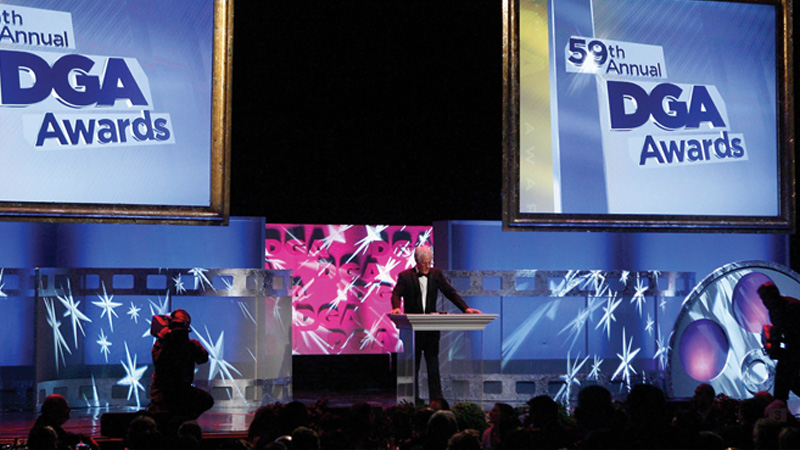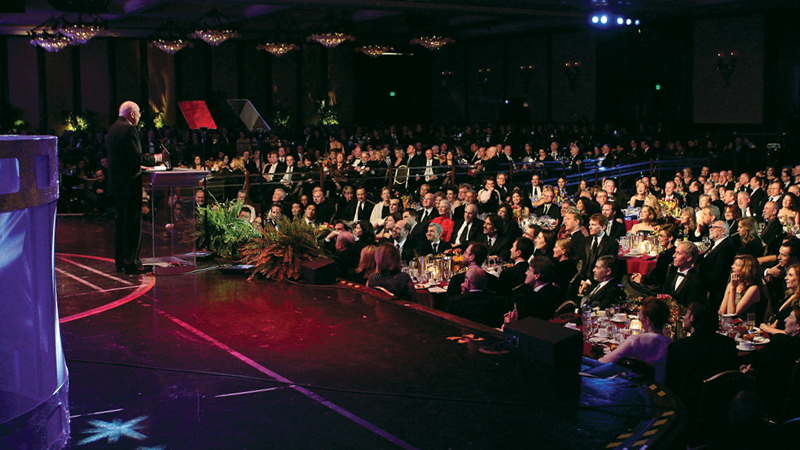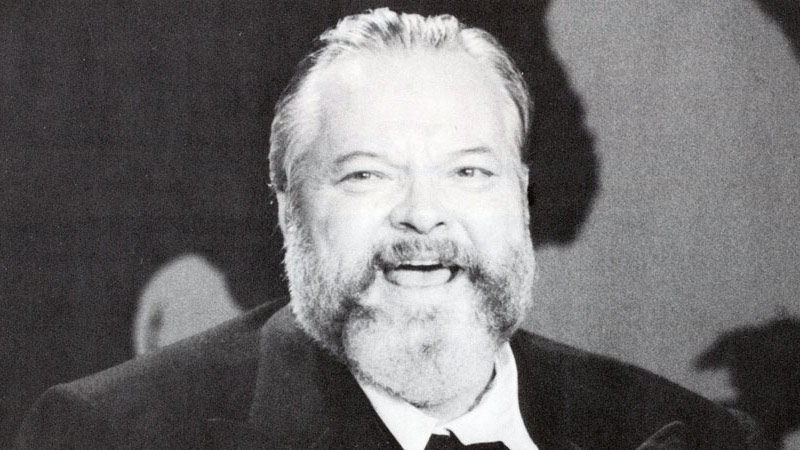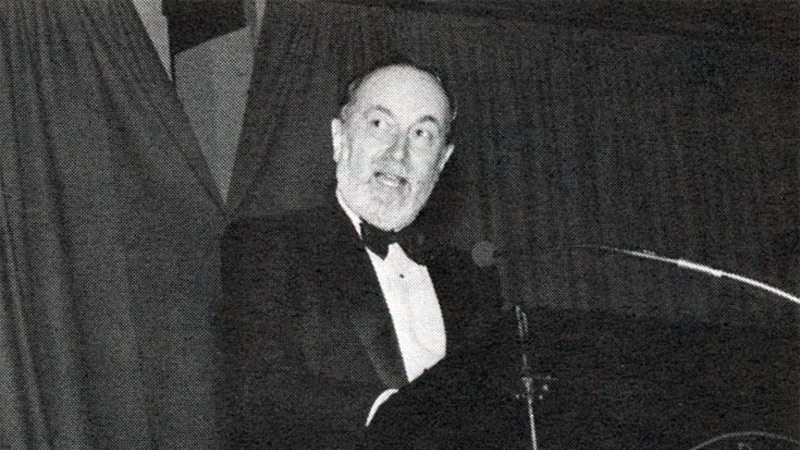DGA President Michael Apted, welcomed everyone to one of the most prestigious events of the year. "This is a rare opportunity to see interplay between very successful directors and hear them compare and contrast their process in bringing a film to life," said Apted. "All have created brilliant work with limited budgets that shows the excellence and diversity of filmmaking today."
"Your achievements as filmmakers are already well known to all of us," said Kagan. "But in the five films you’ve just made, you've clearly aspired to raise our consciousness. This audience is made up of filmmakers of all aspects and they're here to be able to learn from you, as I'm sure you’re all here to learn from each other."
Ron Howard's Frost/Nixon relives the infamous television interviews between talk show host David Frost [Michael Sheen] and the disgraced former President Richard Nixon. Howard spoke about the challenges of adapting the story for the screen. "The question for us was how do we make the audience accept this man as Nixon? So under the titles, I blended in audio of the real Nixon from tapes even if it was subliminal. It helped with the transformation, but we used examples where he was being harsh. I wanted to remind people in some way there was a reason he was going down."
Danny Boyle's Slumdog Millionaire reveals the story of a Mumbai street kid whose difficult life creates perfect schooling to allow him to correctly answer the difficult questions on a television game show. Boyle spoke about creating the proper feeling for the film. "We had all these different timelines and made the decision to have three different sets of actors playing the characters at certain ages and that would be the only indication of what time you were in. We wanted it to feel like it was all present day, even though it was clearly five years ago, or ten years ago. That was one of our guiding principles, that we would mix everything and go anywhere. We wanted to try to tumble everyone into the film to be as subjective as possible. One of the dangers of India is that, cinematographically, you look around everywhere and go 'Oh my God! Look at that!' So we never wanted to do that. We wanted to introduce people through close-ups and then through that chase in the beginning."
Gus Van Sant also took the audience back in time in Milk, the biography of Harvey Milk [Sean Penn], the first openly gay person ever to be elected to public office in the USA. In the film’s opening Harvey records his will in case he is assassinated. Van Sant spoke about using this as a device to pull the audience into the film. "We had so much story to tell that in feeling out the script we decided to use the will as an encasement of the whole story. It was a way to not just have a voice-over. But during editing, you work on the beginning of a movie and get it just right, then you realize that the rest of the movie needs attention, so you work on it and get it just right, then realize the beginning’s no good. And you go back and forth with this until you have to turn the film in."
Christopher Nolan spoke about the opening to The Dark Knight, where the world is introduced to the Caped Crusader’s arch nemesis, The Joker [Heath Ledger]. "The problem we faced is that we were introducing a very iconic character that the audience is already very familiar with, in a totally different incarnation. The whole thinking behind the opening was to aggressively present Heath's portrayal in a sequence that would excite the audience and show them the way we were reinterpreting the character in a context more like a conventional action film as opposed to a superhero comic. So we tried to construct a sequence that would be overpowering to the audience, and not allow them to reject Heath's portrayal. We wanted to conceal who he was and let his body language start to show that there was something different about this character wearing the mask. We wanted to make the statement that what Heath was going to be doing was going to be new and different, but still true to the iconography."
David Fincher spoke about creating the opening to The Curious Case of Benjamin Button, his complex love story of a man [Brad Pitt] who is cursed by fate to age backwards, while the love of his life [Cate Blanchett] ages normally. Fincher explained how he worked to give the audience a way to access the complicated story, but ultimately decided it would be better to only give them a glimpse of the strange infant Benjamin. "I’ve always felt that you shouldn’t see anything you don't need to see. The thing about the baby is the notion that we would tease as much as possible. I much more interested in the notion of a baby left on a doorstep and them people going [gasp] 'Oh my God!' That to me was much more powerful than anything we could cast out of silicon."
With that start, the panel engaged in a morning of questions and answers about the pre-production, production and post-production phases of each of these excellent films. In a matter of hours one of these five directors would earn the Outstanding Directorial Achievement in Feature Film trophy from the 61st Annual DGA Awards, but the morning set competition aside for camaraderie, and exploration into the elements involved in creating a film deemed worthy of one of the industry's highest honors.
